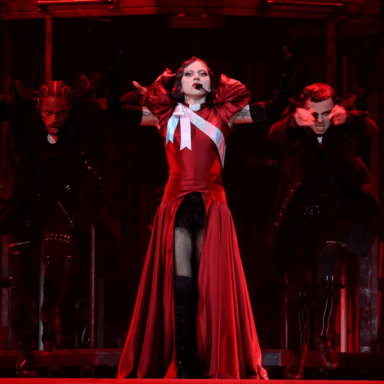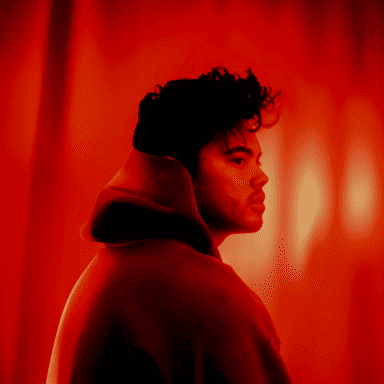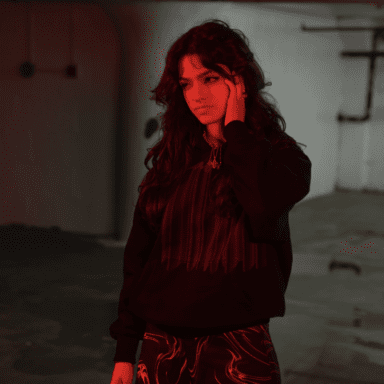Simon Mansa, who recently released the compelling single “Indefinite War,” reveals that the most challenging aspect of producing the song was not having access to his studio during the recording of vocals. The Brooklyn native also opened up about his discovery of his family’s history, and how it influenced the creative process behind the single and guided the sonic choices.
During our interview, Mansa stressed the significance of artists’ role in addressing social and political issues, using music as a unifying force to dissolve barriers between people. Drawing from his global travels, he explained how different cultures have influenced his creative style and shaped his vision for the future. He says that he prioritizes elements that breathe life into his music, ensuring harmony among different components, and leaving ample room for the listener to embark on an immersive sonic journey.
Continue to read the full interview below.
What was the most challenging aspect of producing “Indefinite War,” and how long did it take you to complete the track from start to finish?
Well I had some lyrical ideas sketched out in my notes app on my iPhone for a week or two, but ended up rewriting and finishing the song as I recorded it in one night. The original music was an assignment for my sound design course in NYC created years ago that I knew one day I’d write a song too. I ended up adding sounds like the organ, big synth, and fine tuned the sounds and sound design over 3-5 days at the time of writing. The mix and master took around 4 more days.
The most challenging aspect was not having access to my studio the night of recording vocals. I ended up making a makeshift vocal booth in the bedroom of my apartment in Brooklyn out of a comforter and some lighting stands… a real DIY setup, and recorded the vocals to my laptop as I wrote the song in notes on my iPhone.
How did your personal discovery about your family’s history influence the creative process behind this single? Did it change the direction or message of the song in any way?
Oh absolutely. It had been weighing kind of heavy on me and was definitely an emotional and impactful event, so it all kind of came out in the song and helped guide the sonic choices too.
Can you explain the process you went through to find the right balance of sounds and instrumentation to create the final mix of “Indefinite War”? How did you know when you achieved the perfect sound you were aiming for?
Well the original composition I wrote had very similar sounds but was missing a tone and depth that I felt the song needed. Majority of the sounds from the 808’s, to the crunch of the claps, hammond organ, piano and impact sounds were layers that replaced the original sounds to really drive it to a place with a more epic feel.
In mixing, I was really going for depth and for it to just sound “Wow!” Like you know… big, cinematic! I sent it to a few close friends and engineers and ended up listening to the mix across 4 different headphones and 3 different speaker systems. When the song translated and felt good across all systems, and the feedback from the people I sent it to was positive, I knew it was ready!
Traveling across different countries and continents can be a transformative experience for musicians. How have your experiences touring influenced your musical style and creative vision?
You know that’s a great question. I always encourage people to travel, broaden their horizons. I’ve found that the more places you visit and cultures you connect with, teaches you more about yourself and others. It really adds to the human experience that then translates through your art! For me it’s been a humbling experience. As far as creative style, I would say traveling to different countries has made me more aware of what vibe resonates with me and has enhanced my own style.
For me traveling exposed me to what truly connects with me on a deeper level and what doesn’t. As far as vision, being around so many creatives from different parts of the world gave me permission to just be myself, search for, and execute my own vision. That’s where the magic comes from! Connecting with my family roots in Mali and an unforgettable trip to Timbuktu inspired the “Mansa” name that I adopted.
The song’s message highlights the importance of mutual support and empathy during tough times. How do you see your music contributing to the larger conversation about social and political issues?
Well you know… a popular consensus among the art world is that it’s an artist’s responsibility to reflect what’s happening socially and politically, and I do agree with that. I see this release and future releases breaking down walls of division between people and bringing people together instead of dividing. Shining a light on the need for acceptance, even if we don’t understand or agree with each other. Also contributing to the conversation of building upon strength and perseverance is key to change and growth.
As someone who wears many hats in the music-making process, can you describe your creative approach to writing, producing, and arranging your music? Do you have a preference for one role over another, and how do you ensure that your creative vision is captured during each phase of the process?
It’s definitely a balancing act wearing different hats and really having no preference for one role over another. I enjoy each part of the process as I get to express myself and my vision through each role. Whether it’s recording instrument parts, vocals, writing, producing, composing, arranging, mixing and mastering, they all require a different mindset, approach and touch.
When creating I’m constantly reminding myself of the task at hand. For example if I’m recording parts, producing or arranging, I’m focusing on what I feel would really bring this to life and how it will work with the other parts, am I adding too much, what can I take away, does it make it better, is there enough room to allow the song to take the listener on a journey, does the part feel great on it’s own? So many questions but it’s kind of an astral process where you’re like blindfolded searching for a vibe, coz the parts aren’t there yet and have to be created.
It’s important to me to work fast because the best creative ideas come through super quickly and you’ve gotta just catch it and get it out, or it’s gone. If you get stuck… just move on to something else. Sometimes you’ve got to step away, go for a walk and come back to approach it differently. Then in mixing and mastering it’s like every sound is there now and pulled into view under the microscope and you’re coloring it to add shine. It’s a different type of feeling that you get from completing a good mix.
Can you tell us more about the album recorded in Mali, West Africa, collaborating with the Grammy Award-winning artist Toumani Diabate?
I met Toumani around 5 years prior. We were both performing at WOMAD world music festival in Adelaide, Australia and I met him backstage. It was the first time I’d heard musicians from Mali perform traditional music and it was a very emotional experience. My mother’s from Mali so I have roots there and I didn’t know much about the culture at the time. It blew me away at how deep and rich the music and culture was. I explained this to him when I met him and he gave me his card and said “You must come to Mali, you’ll be coming home. When you do, contact me”. Toumani descends from 71 generations of Griot’s going back to the empire of Mali, so that was all the permission I needed to visit and connect with my roots.
Fast forward 5 years and a fusion project with veteran guitarist Moussa Diakité returning back to Mali to record with his contemporaries gave me the opportunity to play bass and produce the album. Toumani was a featured artist on the recording and in true regal fashion he listened to the song once in the control room, went into the recording room and played the song through and recorded it in one take without error. It was amazing! Then we spent the rest of the evening hanging out, drinking tea and listening to the rest of the album. There are many more stories about that recording project as the traditional Malian musicians are very special. They’re dedication to their instrument helps them to develop an incredible skill set. There’s real magic in the air there.
Listen to “Indefinite War” here:










